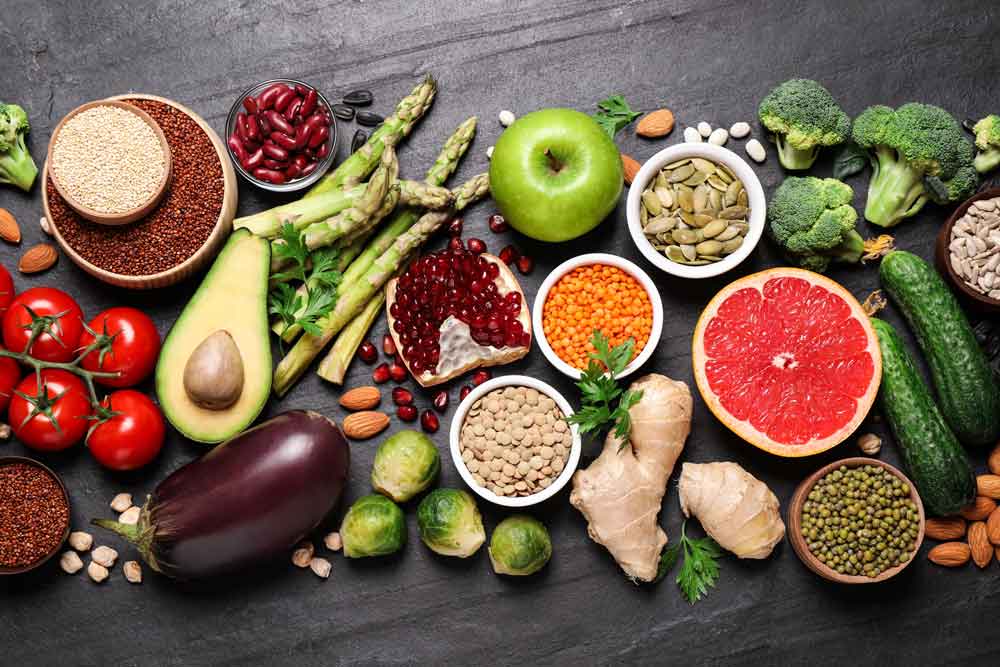You must have heard this popular saying, “You are what you eat”. This is one way to tell us what we consume has a direct impact on our physical health. Therefore, healthy eating has always been recommended. But did you know, what you eat also affects your mental wellbeing? Gut health has implications beyond digestion, as studies show, 90 per cent of the hormone serotonin, which determines mood and behaviour is made in the gut. Hence feeding the gut with the right nutrition will help in adequate production of this hormone, which further boosts mental health.

Dietary Habits And Mental Health
Here is how your dietary habits impact your mental health, as explained by Ms Mehezabin Dordi, clinical psychologist, rehabilitation and sports medicine department, Sir HN Reliance Foundation Hospital, Mumbai:
1. It’s crucial for brain development
When we consume nutritious food, it becomes the protein-building blocks, enzymes, brain tissue, and neurotransmitters that transfer information and signals between various parts of the brain and body.
2. It puts the brain into grow mode
Certain nutrients such as omega-3 and zinc are linked to changes in a brain protein that helps increase connections between brain cells. On the other hand, a diet high in saturated fats and refined sugars has a negative impact on brain proteins as they can alter the brain chemistry through inflammation and give rise to mood disorders.
3. It fills the gut with healthy bacteria
Trillions of good bacteria live in the gut. They fend off bad germs and keep your immune system in check, which means they help tame inflammation in the body. Some gut germs even help make brain-powering B vitamins. Foods with beneficial bacteria (probiotics) help maintain a healthy gut environment. A healthier microbiome is going to decrease inflammation, which affects mood and cognition.

What Should You Eat?
Karishma Chawla, a nutritionist and lifestyle educator based out of Mumbai, tells us about what to consume to boost our mental health:
- Fermented foods such as fermented veggies, apple cider vinegar, and curd. They’re loaded with beneficial bacteria, which when fed with soluble fibre, can produce B vitamins, Vitamin K, short-chain fatty acids and immune-regulating compounds that fuel the gut and prevent inflammation.
- Whole grains such as rajgira, millet, quinoa, barley, onion, garlic, asparagus, leek and high fibre fruits and vegetables.
- Blood sugar balancing foods including whole grains such as jowar, bajra, ragi, and oats.
- Magnesium-rich foods: green leafy veggies, avocado and nuts.
- Vitamin B12 is involved in the function of every cell in the body. It’s an important nutrient in the functioning of the brain. Sources are animal foods like meat, fish, and eggs. It helps combat memory loss and fatigue.
- A good level of Vitamin D, also known as the sunshine vitamin, helps keep the brain function in check. It’s important to check its levels every six months and boost its levels with foods and supplements. Sources are egg yolk, salmon and sardines.
- Vitamin E is a fat-soluble antioxidant that is very important in the protection of the brain and peripheral nerve cells. Vitamin E supplementation along with vitamin E foods are helpful. Sources are whole grains, green leafy vegetables, nuts, apples, carrots, tomatoes, avocados.
- Vitamin C helps protect the brain and nerve cells. Sources are green leafy vegetables, broccoli, parsley, citrus fruits, lemons, papaya, bell peppers, and cauliflower.
- Omega 3 fatty acids DHA (the most abundant fatty acid in the brain) is imperative for the proper functioning of the brain. Fatty fish including salmon and sardines are beneficial, and so are chia, flax seeds, and walnuts.
She also clarifies to note the foods that one is allergic or intolerant to, since they can create brain fog, irritability and inflammation when consumed, and can compromise mental health.
Dr Eileen Canday, head dietician and head of department, nutrition and dietetics, Sir HN Reliance Foundation Hospital, Mumbai suggests limiting the intake of processed food, and refined sugars as they have been known to contribute to mood disorders, including anxiety and depression. Dr Dordi further adds that one must try to avoid alcohol as much as possible as it is a depressant, followed by coffee or caffeinated products, as it is a stimulant that gives you a quick burst of energy but will later make you feel drained of it.

Diet And Eating Disorders
Many people end up emotional eating at one time or another. It could show itself as eating a bag of chips when bored or eating a chocolate bar after a difficult day at work. However, when it becomes frequent or is the only way a person deals with their emotions, then their life, health, happiness, and weight can be negatively affected. There are both physical and psychological causes for emotional eating. Dordi explains, “Often, emotional eating is triggered by stress or other strong emotions. Coping strategies can help a person trying to alleviate the most severe symptoms.”
Some coping strategies, suggested by Dordi include:
- Recognise the triggers and situations that apply in their life, which leads to them reaching for their comfort food.
- Keep a food diary or journal to help identify situations when someone is more likely to eat because of emotional instead of physical hunger.
- Tracking their behaviour is another way someone can gain insight into their eating habits. Finding ways to counteract the triggers and develop more healthy coping skills is important. For example: if you eat when bored, you can find a new book that sounds exciting to start reading, or start a new hobby that could provide a challenge. Or, if you eat when depressed, you may want to call a friend, go for a run, or plan an outing to cope with the negative feelings.
- Eating disorder treatment depends on your particular disorder and the set of symptoms experienced by an individual. It typically includes a combination of psychotherapy, nutrition education, medical monitoring and sometimes medications.
- The treatment also involves addressing other health problems caused by an eating disorder, which can be serious or even life-threatening if they go untreated for too long. Having an organised approach to eating disorder treatment can help you manage symptoms, return to a healthy weight, and maintain your physical and mental health. Managing an eating disorder can be a long-term challenge.
- Set up a treatment plan, which is an individualistic plan developed for the person as per their symptoms and condition. It includes the following:
Develop a treatment plan: This includes a plan for treating the eating disorder and setting treatment goals. It also makes it clear what to do if you're not able to stick with your plan.
Treat physical complications: The treatment team monitors and addresses any health and medical issues that are a result of the eating disorder.
Identify resources: The treatment team can help you discover what resources are available in your area to help the individual meet goals.
Work to identify affordable treatment options: As hospitalisation and outpatient programs for treating eating disorders can be expensive, and insurance may not cover all the costs.
- Psychological therapy is the most important component of eating disorder treatment. Therapy may last from a few months to years. Treatment may involve a combination of different types of therapies- such as cognitive behaviour therapy, family interventions and group-based interventions etc.

Dietary Tips To Follow
As recommended by Ms Dordi and Dr Canday, some of the tips you can follow to ensure mental and physical wellbeing are:
•Develop a healthy shopping list and stick to it. Don’t shop while hungry, since you’ll be more apt to make unhealthy impulse purchases.
•Think about where and when you eat. Don’t eat in front of the television, which can be distracting and cause you to overeat. Instead, find a place to sit, relax and really notice what you’re eating and eat mindfully. Chew slowly. Savour the taste and texture.
• Eating breakfast gives your day a good start as a satiated stomach contributes towards an active brain.
• Instead of eating a large lunch and dinner, try eating smaller portions spaced out more regularly throughout the day.
• If you don’t drink enough fluid, you may find it difficult to concentrate or think clearly. You might also start to feel constipated. It’s recommended that you drink between 6–8 glasses of fluid a day.
• Sometimes your gut can reflect how you are feeling emotionally. If you're stressed or anxious this can make your gut slow down or speed up. For healthy digestion, you need to have plenty of fibre, fluid and exercise regularly. Healthy gut foods include fruits, vegetables and whole grains, beans, pulses, live yoghurt and other probiotics.
• If you drink tea, coffee or cola, try switching to decaffeinated versions. You might feel noticeably better quite quickly if you drink less caffeine or avoid it altogether.
Also Read: 5 Tips To Make Your Diet Healthier
Also Read: The Gut Microbe-Health Connection Is Real. Here's How it Works